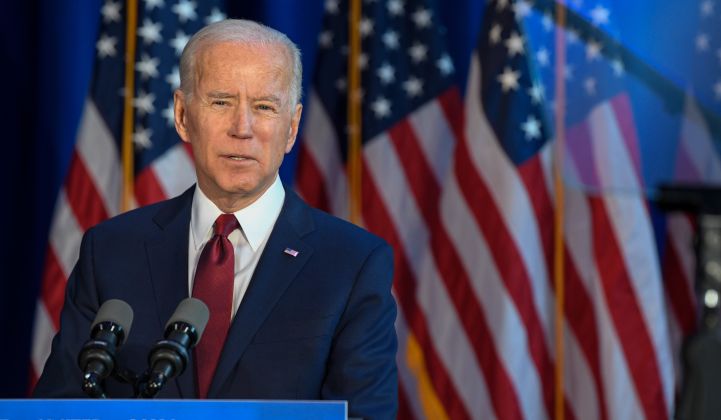Joe Biden has just released the details of his $2 trillion plan to combat climate change, firming up a key pillar of his platform heading into the 2020 election. The proposal is being pitched as a way to boost the American economy, create millions of jobs and “build back better” coming out of today’s profound public health and economic emergencies.
The Biden climate plan comes on the heels of the Biden-Sanders Unity Task Force recommendations on addressing climate change and environmental injustice, as well as House Democrats’ 500-page report on solving the climate crisis.
We break down key elements of these proposals on this episode of Political Climate. Resident Democratic co-host Brandon Hurlbut, co-founder of Boundary Stone Partners and former chief of staff at the U.S. Department of Energy, and Republican co-host Shane Skelton, co-founder of S2C Pacific and former policy adviser to House Speaker Paul Ryan, discuss the details and political implications of Biden’s climate plan.
A key feature of the proposal is to achieve net-zero carbon emissions in the electricity sector by 2035. We also take a look at recent industry-led progress toward that goal. Plus, we discuss the House-passed “Moving Forward Act,” a comprehensive surface transportation bill that aligns closely with the Biden platform.
In theory, there’s a lot in all of these proposals for leaders across the political aisle to love.
Recommended Reading
- GTM: Biden Pledges $2T in Clean Energy and Infrastructure Spending
- Resources Magazine: A Close Look at the New Report from the House Select Committee on the Climate Crisis
- GTM: Can the Clean Energy Industry Deliver on the Biden-Sanders Climate Plan?
- GTM: Finding Bipartisan Opportunities in House Democrats’ Climate Plan
- Forbes: Moving Forward Act Is a $1.5 Trillion Congressional Bill That Loves Electric Vehicles
Political Climate is produced in partnership with the USC Schwarzenegger Institute. This episode is brought to you with support from Lyft. Listen and subscribe on Apple Podcasts, Spotify, Stitcher, Google Play or wherever you get podcasts.




